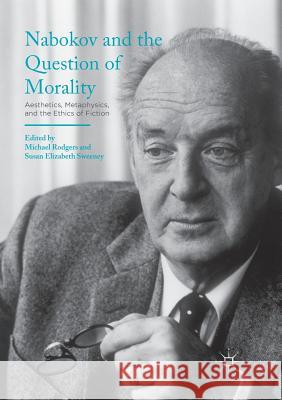Nabokov and the Question of Morality: Aesthetics, Metaphysics, and the Ethics of Fiction » książka
topmenu
Nabokov and the Question of Morality: Aesthetics, Metaphysics, and the Ethics of Fiction
ISBN-13: 9781349955558 / Angielski / Miękka / 2018 / 241 str.
Nabokov and the Question of Morality: Aesthetics, Metaphysics, and the Ethics of Fiction
ISBN-13: 9781349955558 / Angielski / Miękka / 2018 / 241 str.
cena 403,47
(netto: 384,26 VAT: 5%)
Najniższa cena z 30 dni: 385,52
(netto: 384,26 VAT: 5%)
Najniższa cena z 30 dni: 385,52
Termin realizacji zamówienia:
ok. 22 dni roboczych
Bez gwarancji dostawy przed świętami
ok. 22 dni roboczych
Bez gwarancji dostawy przed świętami
Darmowa dostawa!
Kategorie:
Kategorie BISAC:
Wydawca:
Palgrave MacMillan
Język:
Angielski
ISBN-13:
9781349955558
Rok wydania:
2018
Wydanie:
Softcover Repri
Ilość stron:
241
Waga:
0.31 kg
Wymiary:
21.01 x 14.81 x 1.37
Oprawa:
Miękka
Wolumenów:
01
Dodatkowe informacje:
Wydanie ilustrowane











